
Politics
16:51, 22-Sep-2017
China in the headlines as New Zealand goes to the polls
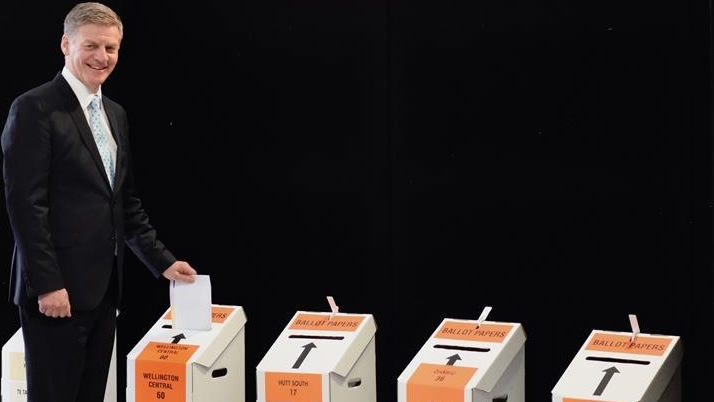
The New Zealand general election reaches its conclusion on Saturday, following a competitive campaign punctuated by questions over alleged Chinese influence in the South Pacific nation - claims that have provoked accusations of “smears” and “insinuations.” So are concerns about possible “foreign influence” in a domestic election valid or is it simply thinly veiled xenophobia?
A surge in support for Labour under 37-year-old new leader Jacinda Ardern has ignited the race, but spats over foreign investment, immigration, and the role of China in New Zealand have also featured heavily as Bill English’s Nationalist Party seeks to remain in power.
Jian Yang allegations
Allegations that a Chinese-born Nationalist Party MP had been investigated over links to Chinese intelligence services hit headlines in mid-September.
Jian Yang, who became a New Zealand citizen in 2004, acknowledged at a press conference on September 13 that he had spent time teaching English at a military school in China, but insisted that he was a civilian officer and had been transparent about his employment history.
"I challenge those who are propagating these defamatory statements to front up and prove them. This is a smear campaign by nameless people who are out to damage me and the National Party 10 days from an election, just because I am Chinese," Yang said in response to allegations that first emerged in a joint investigation by the Financial Times and Newsroom.
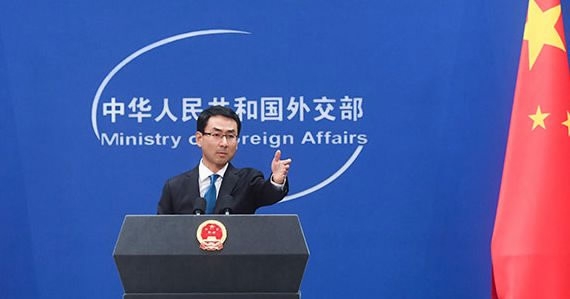
Chinese Foreign Ministry spokesperson Geng Shuang. /China Daily Photo
Chinese Foreign Ministry spokesperson Geng Shuang. /China Daily Photo
Asked at a September 13 press briefing whether Yang had “once been trained as a spy by the Chinese military”, Chinese Foreign Ministry spokesperson Geng Shuang responded:
“First, I would like to stress that the MP you mentioned is a citizen of New Zealand. So, as for the detailed information about him, I think you should ask the competent authorities of New Zealand.
“Second, with regard to the domestic affairs of other countries, we usually do not make comments. We follow the principle of non-interference in other countries' internal affairs.
“Third, we firmly oppose that certain media make up fake news by inventing groundless assumptions based on hearsay evidence and fabricating something out of thin air.”
Although there has been an anti-China undercurrent in some reporting, the New Zealand election has not featured campaign attacks on China from the main party leaders. Neither does it neatly fall into the political narrative of “populists” versus the “establishment.”
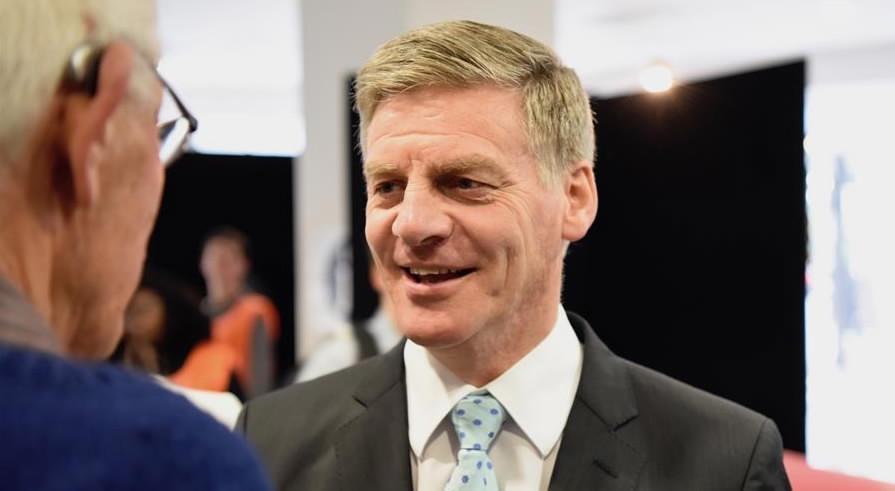
New Zealand's Prime Minister and National Party leader Bill English. /Xinhua Photo
New Zealand's Prime Minister and National Party leader Bill English. /Xinhua Photo
The latest opinion polls suggest that a National-led government is again likely, with Labour falling nine points behind in a One News-Colmar Brunton poll published on Wednesday.
However, the “establishment” National Party would probably again require the support of the populist New Zealand First Party to form a government.
Winston Peters, founder and leader of the New Zealand First Party, has demanded an inquiry into Yang, who has sat on the country’s Foreign Affairs, Defense and Trade select committee.
Soft power claims
Questions were again raised this week with the publication of a research paper by a University of Canterbury professor analyzing Chinese soft power in New Zealand.
The claims in the paper, which detailed political donations made by Chinese businesspeople, made headlines in New Zealand but were downplayed by the main party leaders.
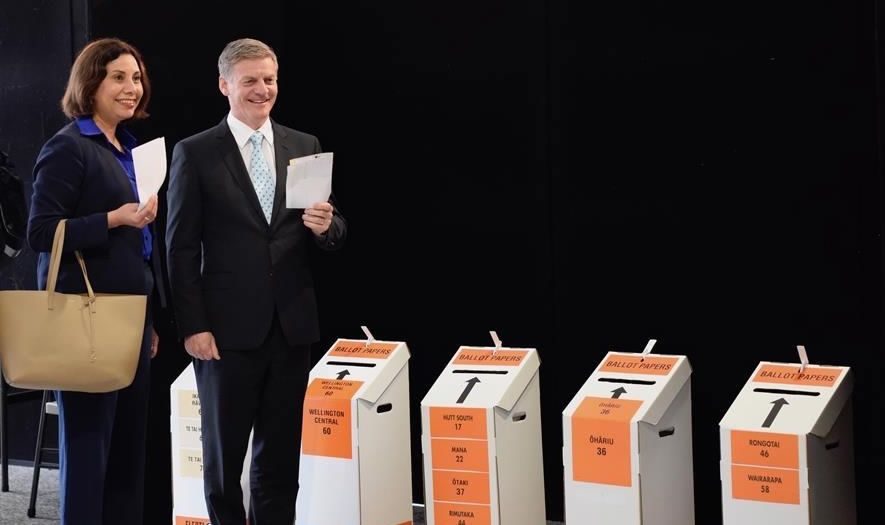
New Zealand's Prime Minister and National Party leader Bill English (R) shows his ballot before casting the advance vote in a polling station in Wellington, New Zealand, on September 21, 2017. /Xinhua Photo
New Zealand's Prime Minister and National Party leader Bill English (R) shows his ballot before casting the advance vote in a polling station in Wellington, New Zealand, on September 21, 2017. /Xinhua Photo
"I don't see any obvious sign of things that are inappropriate," Prime Minister and National Party leader Bill English said, according to the New Zealand Herald.
Asked whether New Zealand should launch an inquiry into foreign influence, Labour Party leader Jacinda Ardern said she would be interested in reviewing a similar exercise carried out in Australia but added: "I don't think that's something that's necessarily come up... as being an issue.”
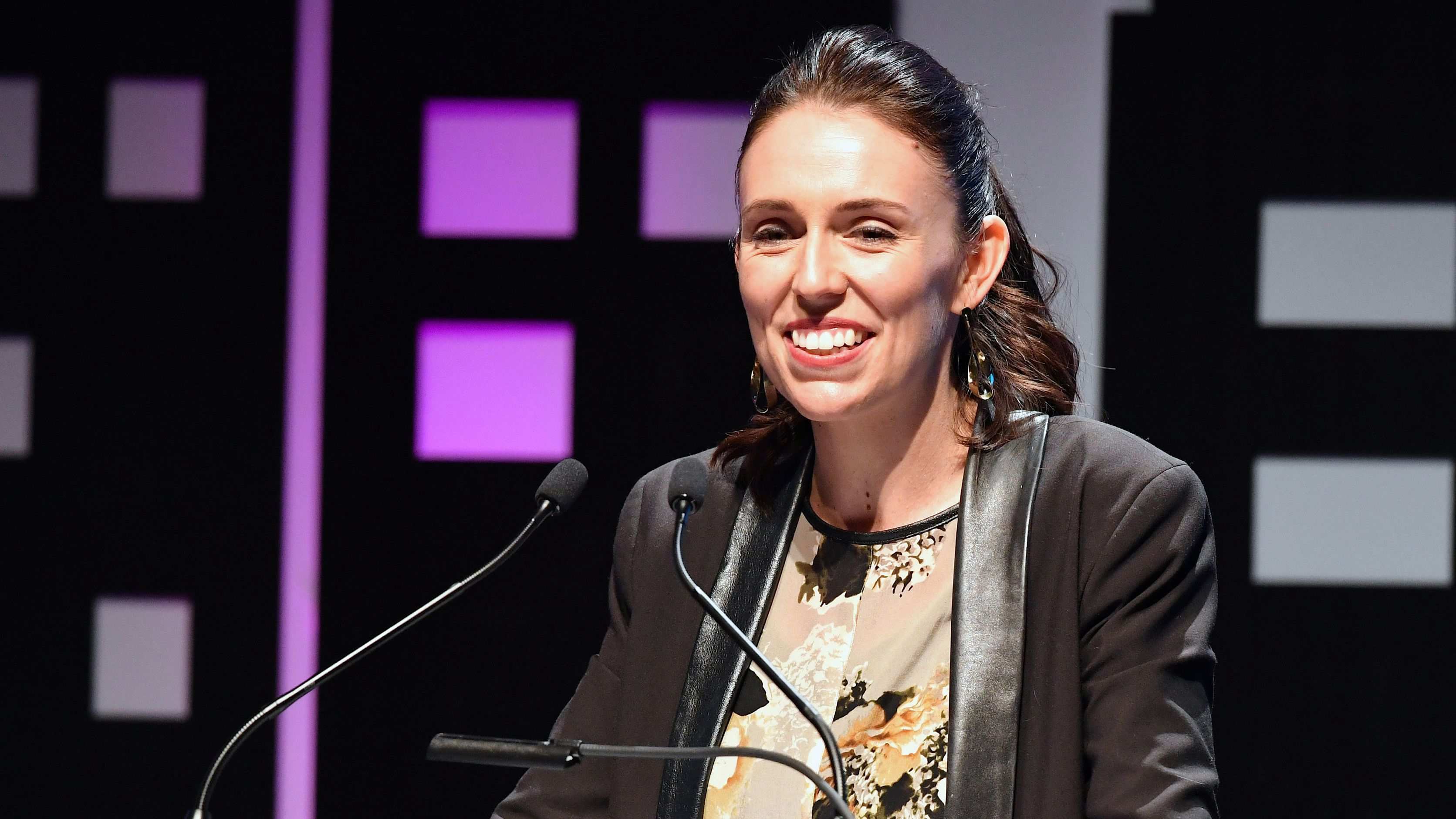
New Zealand's Labour Party leader Jacinda Ardern. /Reuters Photo
New Zealand's Labour Party leader Jacinda Ardern. /Reuters Photo
Ardern also rejected the suggestion of links between prospective Labour candidate Raymond Hou and China, telling the New Zealand Herald: “It sounds to me like it's an insinuation that's being made.”
Foreign property ownership
Immigration and foreign ownership of residential housing have also been hot topics on the campaign trail. New Zealand is undergoing a housing shortage, exacerbated by a growing number of returnees attracted by its strong economy.
Ardern has pledged that a Labour-led government would cut net immigration, place stringent tests on hiring overseas workers, and ban foreign ownership of New Zealand residential property. The National Party claims the latter promise would contravene the country’s free trade agreements – one of them being with China.
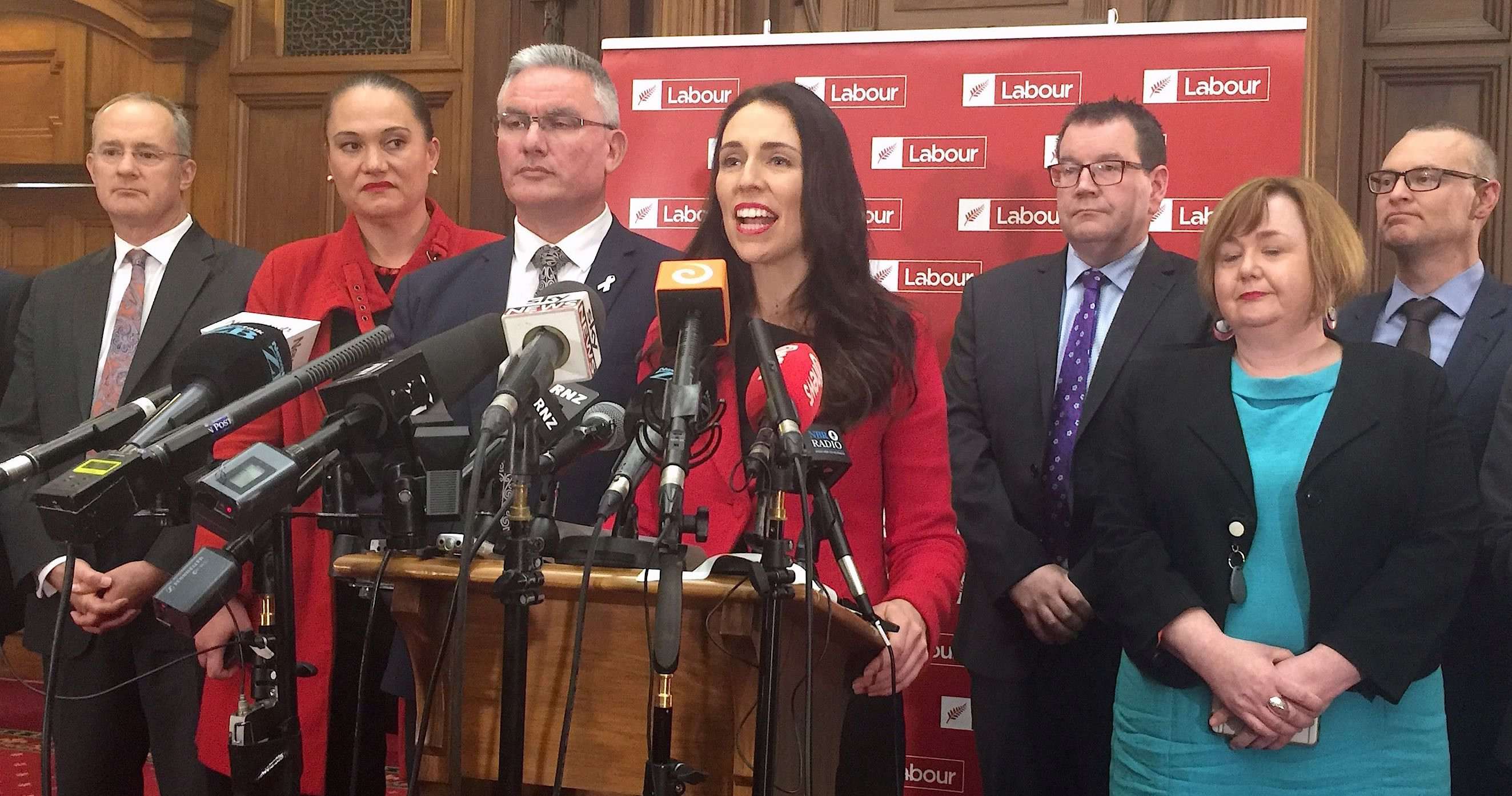
New Zealand's Labour Party leader Jacinda Ardern (C). /Reuters Photo
New Zealand's Labour Party leader Jacinda Ardern (C). /Reuters Photo
New Zealand concluded an FTA with China in 2008 under Labour, and began negotiations over an upgraded deal earlier this year. In March 2017, the counties pledged to expand their existing free trade agreement into what Premier Li Keqiang called China’s “most advanced” with a developed country.
Trade between China and New Zealand has nearly trebled over the past decade, and China is now New Zealand’s biggest export market. Two-way trade hit 14.36 billion US dollars in 2016.
The election is unlikely to be decided by China’s relationship with New Zealand, but the campaign has exposed the complicated relationship some in the South Pacific nation have with the world’s second largest economy.
10792km

SITEMAP
Copyright © 2018 CGTN. Beijing ICP prepared NO.16065310-3
Copyright © 2018 CGTN. Beijing ICP prepared NO.16065310-3